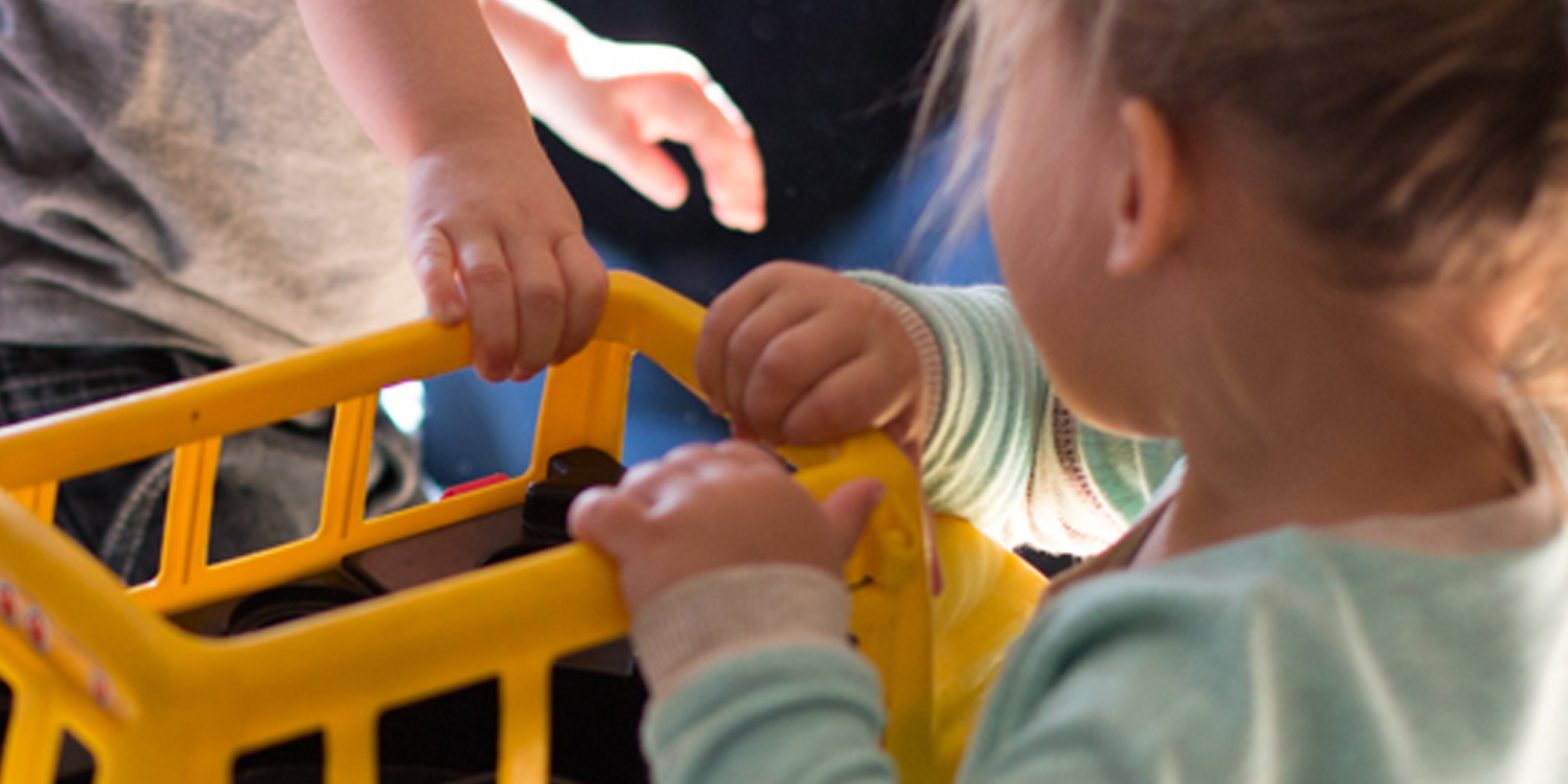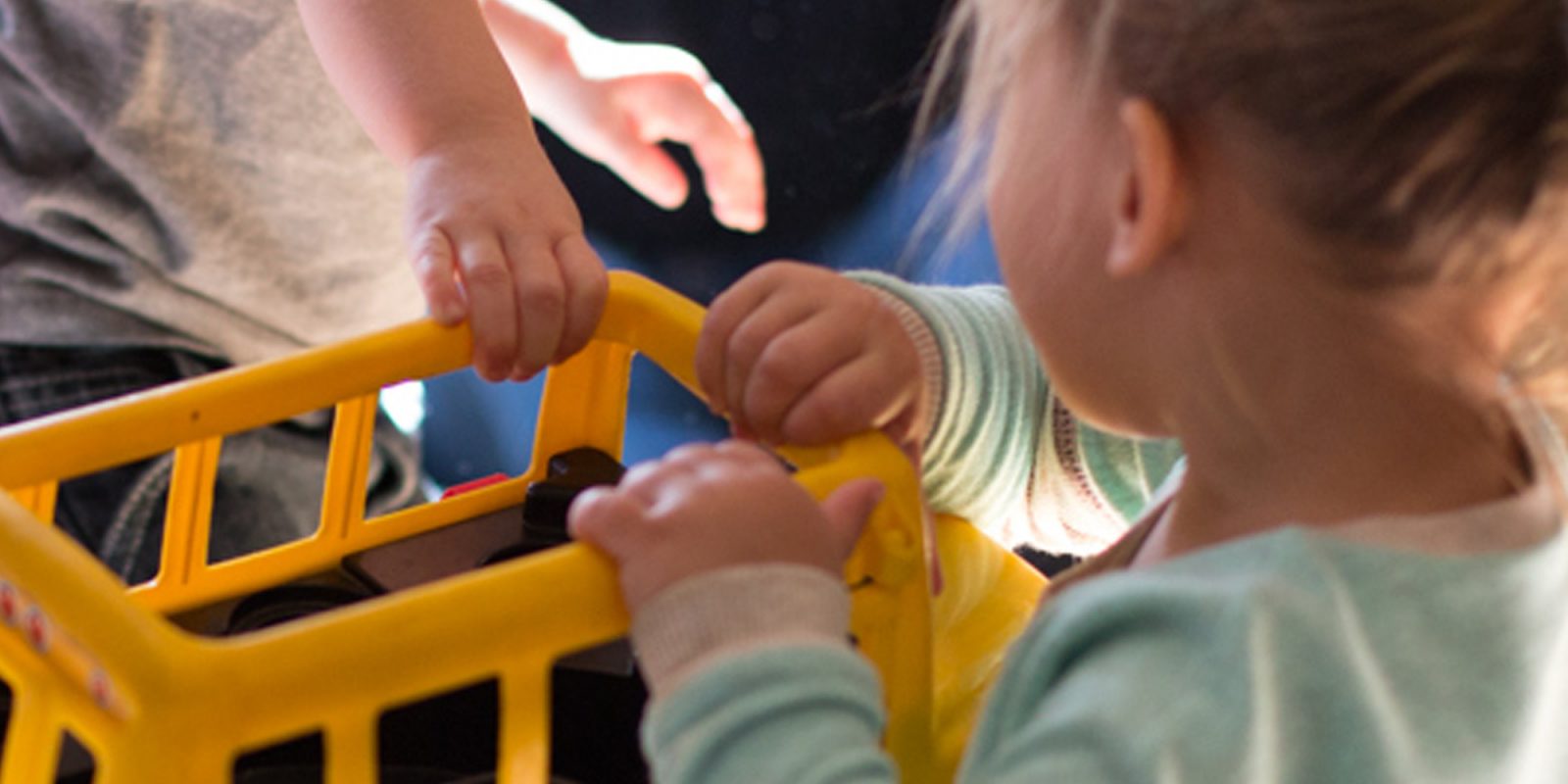It’s chanted on every playground and enforced at the park, parties and play dates. It’s a word that has become the social mantra for parents of toddlers everywhere: Share!
We are all desperate for our children to share. Sharing is vital. The future of the world depends upon our children’s spirit of generosity. We fear that if we don’t remind our children to share, they might become selfish, stingy outcasts. Or, we worry that we will be judged an indulgent, inconsiderate and ill-mannered parent.
The truth is that toddlers don’t yet understand the concept of sharing, and our parental concerns make “share” a loaded word. We tend to misuse it. We say “share,” but what we really mean is, “Give what you have to another child.”
Why would a child want to ‘share’ his red truck when it means giving up the truck to someone else?
Toddlers want what they see, and that object becomes “theirs.” “Mine” can mean either: I see it, I want it, or I’m using it. The idea of ownership — the concept that dad or mom bought an item at the store so now it belongs to them — is not understood by a toddler.
It’s common in my parent-infant classes for children to want the same toy. The giving and taking of toys often begins as a social gesture, an infant’s early attempt to make contact with another infant. The children may appear to be struggling with a toy, but with a bit of patience and objective observation, we usually see that there is little stress and lots of curiosity. If a child reacts to the exchange with surprise or disappointment, infant expert Magda Gerber advises caregivers to “sportscast,” rather than interfere. “Sportscast” means to acknowledge the interactions of the children in a matter-of-fact way, never implying blame. Children often calm down when they feel that an adult understands. We might say, for example: “Rex, you were holding the car, and now Sophie has it.” Or, “You and Sophie both want that toy.”
There are no villains or victims in Toddlerland, just children learning by experimenting with social behaviors.
When infants and toddlers have opportunities for uninterrupted socialization, they will try out different options. Should they let go and allow the other child to take the ball away? What happens if they hold on tightly? If they do ‘share’ or offer something to another child, how does that child react? As Magda Gerber reminded us in her book Your Self-Confident Baby, “Self-learned lessons, whether sharing or the will to hold on, stick with us longer.”
Children will often demonstrate that the interaction with another child is what interests them, not the toy itself. This is evident when there are multiples of a certain object available, yet the children are only interested in the one that has “heat.” Soon after the struggle is over, the toy is usually dropped, becomes “cold,” and no one wants it anymore. Children are best left to work these situations out by themselves while the adults ensure that there is no hitting or hurting.
Several years ago I experienced the futility of adult interference in a toddler power struggle when I brought my daughter to her friend’s house to play. The girls both wanted a particular doll. The girl’s kind-hearted mother couldn’t bear to see them fight, so she offered my daughter a replacement toy, a stuffed turtle. Then both girls wanted the turtle, so she brought something else. She brought toy after toy to the girls, and they continued to fight over each new toy. Finally, after tears and yelling, the girls finished their rivalry, abandoned all the toys and went out in the yard to play, friends again.
So, how do we teach children to share with others?
First, by modeling generosity. For example, saying to a child, “You’re reaching for my crackers. Here, I’ll share some with you.” Or, “Let’s share this umbrella.”
Second, when our child demonstrates generosity we acknowledge it. “It was kind of you to share those blocks with Robert.”
Most importantly, we must be patient and trust that our child will learn to share in time.
No parent feels comfortable when their child takes from another, holds on to toys that another wants to use, or seems upset because another child will not share with him. But these situations usually look far worse from our point-of-view than they do from our child’s. When we unnecessarily intervene in a struggle by insisting that a child shares, we rob him of a social learning experience. And when we insist that our children share before they can truly understand what that means, we risk making “share” a bad word. Children share when they begin to feel empathy for others, empathy modeled through a parent’s patience and trust in them.

This Article is Republished. View the original blog post here.


